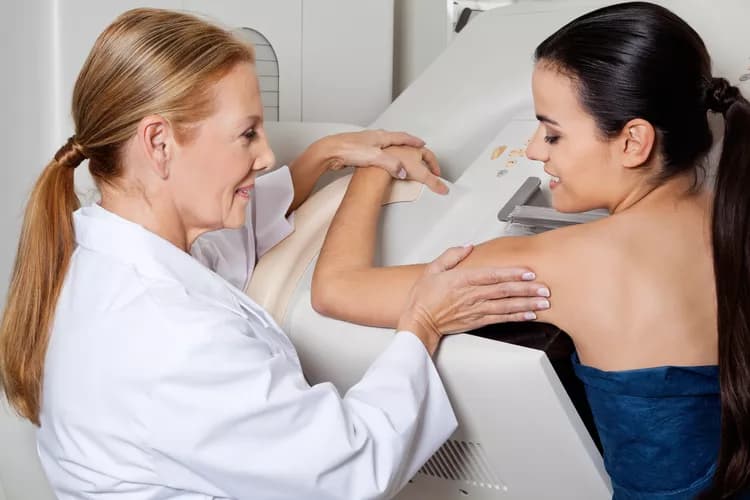
Are Some Types of Breast Cancer Being Treated Unnecessarily?
A study published in the Journal of American Medical Association (JAMA) states that many women diagnosed with early-stage breast cancers, known as ductal carcinoma in situ (designated Stage 0), do not need aggressive treatment or that the treatment early in the process does not impact the outcome.
Breast cancer is the most common type of cancer diagnosis in women. The diagnosis of breast cancer fills a woman with dread and inspires her to seek aggressive treatment. Ductal carcinoma in situ or DCIS is the presence of abnormal cancerous cells in the lining of the milk duct. A diagnosis of DCIS generally indicates that the abnormality is localized in the lining of the milk duct and not spread to other tissue.
Although the prognosis for DCIS is reported to be good, with 98-99% of women still living ten years after diagnosis. However, according to the research news published by breastcancer.org, the number of women opting for mastectomy (affected or both breasts) following a diagnosis of DCIS tripled from 1998 to 2005.
With the aim of estimating 10- and 20-year mortality from breast cancer following a diagnosis of DCIS and to understand if the mortality rate is affected by age at diagnosis, race/ethnicity, and initial treatment received, a Canadian research team followed 108,196 women diagnosed with DCIS over a period of 20 years for the current study. The results of the study are as follows:
- Most of the patients had lumpectomy after diagnosis of DCIS.
- Overall, 3.3% of the patients died specifically as a result of breast cancer.
- The overall mortality rate was higher for women who were diagnosed before age 35 when compared to older women
- The mortality rate was higher in African-American women when compared to non-Hispanic White women.
- The risk of dying increased when patients experienced invasive breast cancer in the breast diagnosed with DCIS.
- Radiation following lumpectomy decreased the return of cancer at ten years, but not the mortality rate.
- The risk of dying from cancer were comparable in women who had lumpectomies and those who opted for mastectomies, although the expectation was that removal of the breast should have protected the latter group.
- Women who had markers of advanced invasive cancer had poorer prognoses.
The editorial in JAMA Oncology sums up the significance of the findings succinctly.
- Much of DCIS should be considered a “risk factor” for invasive breast cancer and an opportunity for targeted prevention.
- Radiation therapy should not be routinely offered after lumpectomy for DCIS lesions that are not high risk because it does not affect mortality.
- Low- and intermediate-grade DCIS does not need to be a target for screening or early detection.
- We should continue to better understand the biological characteristics of the highest-risk DCIS (large, high grade, hormone receptor negative, HER2 positive, especially in very young and African American women) and test targeted approaches to reduce death from breast cancer.
The editorial concludes with the statement, “Questions remain—but there is room to innovate. If we want the future to be better for women with DCIS, we have to be committed to testing new approaches to care.”
Written by Mangala Sarkar, Ph.D.
Primary Reference
Narod, S., Iqbal, J., Giannakeas, V., Sopik, V., & Sun, P. (2015). Breast Cancer Mortality After a Diagnosis of Ductal Carcinoma In Situ. JAMA Oncology. Retrieved August 24, 2015, from http://oncology.jamanetwork.com/article.aspx?articleid=2427491&resultClick=3
DoveMed Resources
Breast Cancer. (n.d.). Retrieved August 24, 2015, from http://www.dovemed.com/breast-cancer/
Additional References
Is Ductal Carcinoma In Situ (DCIS) Breast Cancer? (March 2013) | Susan G. Komen®. (n.d.). Retrieved August 25, 2015, from http://ww5.komen.org/KPDCIS.html
Number of Women Having Double Mastectomy After DCIS Diagnosis Triples. (n.d.). Retrieved August 25, 2015, from http://www.breastcancer.org/research-news/20090410
Study Suggests Some Treatment For Early Breast Cancer Is Unnecessary. (n.d.). Retrieved August 25, 2015, from http://www.npr.org/2015/08/20/433257729/study-suggests-some-treatment-for-early-breast-cancer-is-unnecessary
Esserman, L., & Yau, C. (2015). Rethinking the Standard for Ductal Carcinoma In Situ Treatment. JAMA Oncology. Retrieved August 25, 2015, from http://oncology.jamanetwork.com/article.aspx?articleid=2427488
Related Articles
Test Your Knowledge
Asked by users
Related Centers
Related Specialties
Related Physicians
Related Procedures
Related Resources
Join DoveHubs
and connect with fellow professionals

0 Comments
Please log in to post a comment.